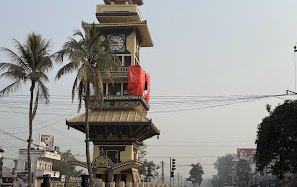
Nepal has a history of radicals transforming to moderates and then leading the national politics. Like all his six predecessors, communist Prime Minister, K.P. Oli is the fourth radical communist who rose from the ranks of being staunch anti-Indians to become the prime minister of Nepal.
Oli faced life imprisonment in his early age and served over a decade of time in the prison. According to Radha Krishna Mainali’s book Full Ko Dui Thunga, Oli was a smart comrade with a very commanding voice in the party. Mainali and Oli were arrested together on murder charges.
After the 1990 movement that ushered in multiparty monarchical system in Nepal, Man Mohan Adhikari led nine months of single party communist government, setting the record as the first communist prime minister of Nepal. Although several governments were formed after that, communist leaders did not get any chance to become prime minister till 2006.
After India orchestrated the 12-point agreement, signed between Maoists and the seven-party alliance, and abolished the monarchy, Nepal got five communist prime ministers. K.P. Oli is the latest one.
UCPN-Maoist leader Pushpa Kamal Dahal, who waged 12 years of violent insurgency, became the prime minister, after the first Constituent Assembly elections, in 2009. After the fall of Dahal’s government, CPN-UML leader Madhav Kumar Nepal became another leftist prime minister, followed by CPN-UML leader Jhalnath Khanal and UCPN-Maoist leader Dr. Baburam Bhattarai.
Although all communist leaders thrived on anti-India slogans, they gave up their stands when they came to power. A Sri Lankan strategic writer, Shelton Kodikara, views that the tenure of office of a Nepali Prime Minister, who is persona non grata in New Delhi, is likely to be short.
Given the tenure of Nepalese communist prime ministers, except that of Jhalanath Khanal, whose government lasted for six months, all other communist prime minister’s tenure has been relatively longer.
Communist leaders might change their stands. However, an overwhelming number of younger people in Nepal tend to be anti-Indian because they grow up in the communist schooling. Even among the members of the civil service, security agencies and common people, communists have many followers, making them champions of the anti-Indian slogans.
As prime minister, Oli rose in popularity with anti-Indian and anti-Madheshi slogans that he used in his party organization to mobilize various sectors. But he cannot change the political course and he cannot change the psychology of the youths.
Leading a coalition of extremes, on the left and right, Oli, contrary to his own ideology, has shown that he is accommodative to any extent in the power game and is willing to forge a compromise to any extent for power.
- MELAMCHI WATER SUPPLY: No Interruption During Monsoon
- Jun 25, 2025
- KOREAN RETURNEES: Successful Integration
- Jun 25, 2025
- UPPER TRISHULI-1: Engaging With Local
- Jun 25, 2025
- IME GROUP: Twenty Five Years Of Journey
- Jun 24, 2025
- NEPAL’S AIR POLLUTION: A Growing Health Concern
- Jun 24, 2025















